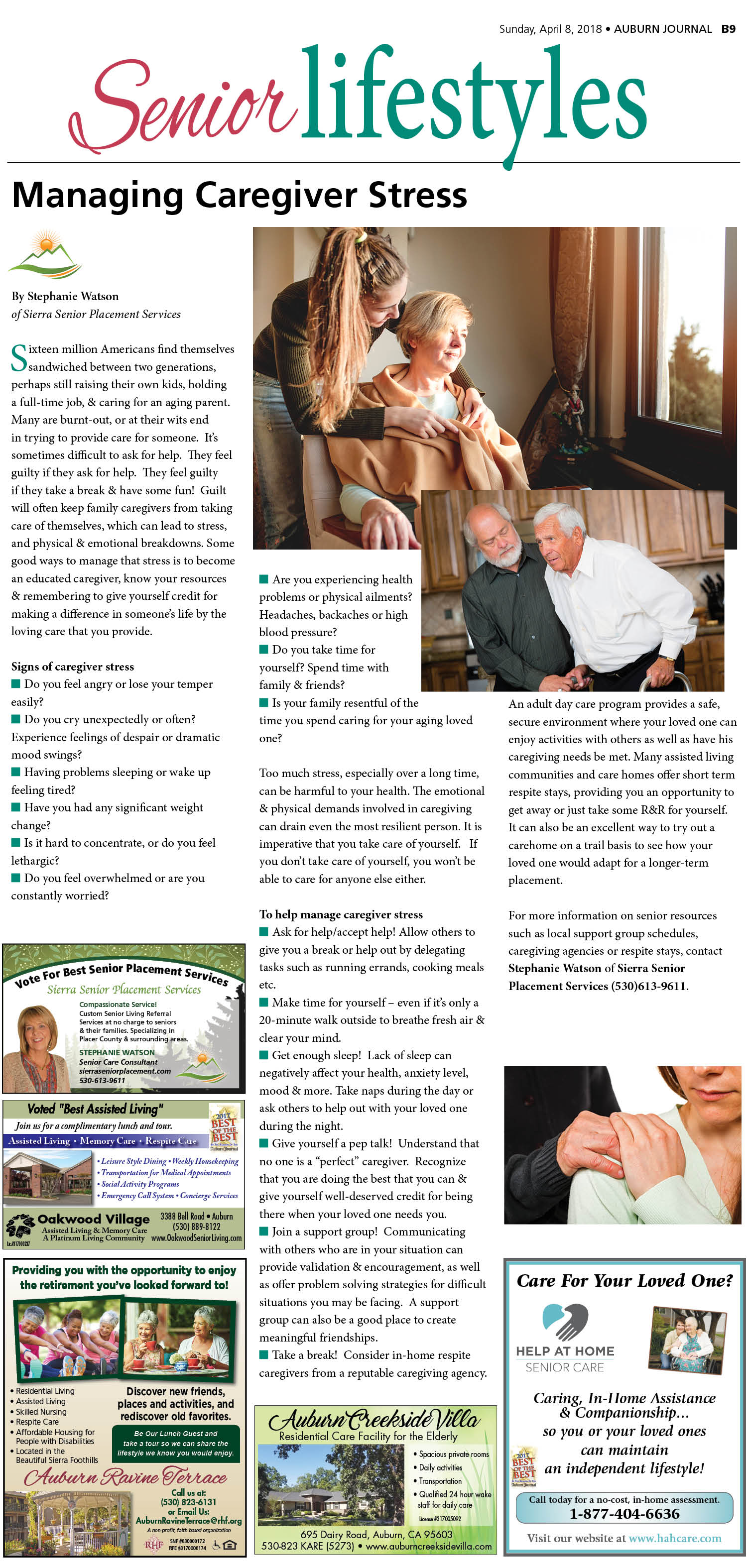Blog: Sierra Senior Placement

Managing Caregiver Stress
- by Stephanie Watson
Sixteen million Americans find themselves sandwiched between two generations, perhaps still raising their own kids, holding a full-time job, & caring for an aging parent.
Many are burnt-out, or at their wits end in trying to provide care for someone. It’s sometimes difficult to ask for help. They feel guilty if they ask for help. They feel guilty if they take a break & have some fun! Guilt will often keep family caregivers from taking care of themselves, which can lead to stress, and physical & emotional breakdowns. Some good ways to manage that stress is to become an educated caregiver, know your resources & remembering to give yourself credit for making a difference in someone’s life by the loving care that you provide.
Signs of caregiver stress
· Do you feel angry or lose your temper easily?
· Do you cry unexpectedly or often? Experience feelings of despair or dramatic mood swings?
· Having problems sleeping or wake up feeling tired?
· Have you had any significant weight change?
· Is it hard to concentrate, or do you feel lethargic?
· Do you feel overwhelmed or are you constantly worried?
· Are you experiencing health problems or physical ailments? Headaches, backaches or high blood pressure?
· Do you take time for yourself? Spend time with family & friends?
· Is your family resentful of the time you spend caring for your aging loved one?
Too much stress, especially over a long time, can be harmful to your health. The emotional & physical demands involved in caregiving can drain even the most resilient person. It is imperative that you take care of yourself. If you don’t take care of yourself, you won’t be able to care for anyone else either.
To help manage caregiver stress
· Ask for help/accept help! Allow others to give you a break or help out by delegating tasks such as running errands, cooking meals etc.
· Make time for yourself – even if it’s only a 20-minute walk outside to breathe fresh air & clear your mind.
· Get enough sleep! Lack of sleep can negatively affect your health, anxiety level, mood & more. Take naps during the day or ask others to help out with your loved one during the night.
· Give yourself a pep talk! Understand that no one is a “perfect” caregiver. Recognize that you are doing the best that you can & give yourself well-deserved credit for being there when your loved one needs you.
· Join a support group! Communicating with others who are in your situation can provide validation & encouragement, as well as offer problem solving strategies for difficult situations you may be facing. A support group can also be a good place to create meaningful friendships.
· Take a break! Consider in-home respite caregivers from a reputable caregiving agency. An adult day care program provides a safe, secure environment where your loved one can enjoy activities with others as well as have his caregiving needs be met. Many assisted living communities and care homes offer short term respite stays, providing you an opportunity to get away or just take some R&R for yourself. It can also be an excellent way to try out a carehome on a trail basis to see how your loved one would adapt for a longer-term placement.
For more information on senior resources such as local support group schedules, caregiving agencies or respite stays, contact Stephanie Watson of Sierra Senior Placement Services (530)613-9611.
